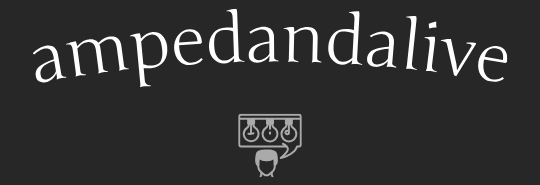Exploring Premier Digital Platforms for Art Sales
In today’s digital landscape, artists have a plethora of options when it comes to selling their art online. With the rise of digital platforms, artists can now showcase their work to a global audience and connect with buyers from all corners of the world. Let’s delve into some of the premier digital platforms that are revolutionizing the art sales industry.
The Power of Online Marketplaces
Online marketplaces have become the go-to destination for artists looking to sell their art to a wide audience. Platforms like Etsy, Society6, and Redbubble offer artists the opportunity to create their own storefronts and sell a variety of products featuring their artwork, from prints and posters to apparel and home decor. With millions of users visiting these platforms daily, artists can tap into a massive pool of potential buyers and expand their reach exponentially.
The Rise of Artist-Centric Platforms
Artist-centric platforms cater specifically to the needs of creatives, providing them with tools and resources to showcase their work and connect with collectors and buyers. Websites like ArtStation, DeviantArt, and Behance allow artists to create professional portfolios, share their artwork with a community of fellow artists, and even sell their work directly to collectors. With features like customizable portfolios and built-in sales functionality, these platforms empower artists to take control of their artistic careers and build a loyal fan base.
Harnessing the Power of Social Media
Social media platforms have become indispensable tools for artists looking to promote their work and connect with fans. Platforms like Instagram, Twitter, and Facebook allow artists to share their artwork with a global audience, engage with followers, and drive traffic to their online stores or websites. By leveraging the power of hashtags, tagging, and sharing, artists can amplify their reach and attract new followers and customers.
Creating Professional Websites and Portfolios
In addition to selling on third-party platforms, many artists choose to establish their own professional websites or portfolios to showcase their work and sell directly to customers. Platforms like Shopify, Squarespace, and WordPress offer customizable website templates and e-commerce functionality, allowing artists to create stunning online stores without any coding or design experience. By owning their own digital storefronts, artists can maintain full control over their brand, pricing, and customer relationships.
Navigating Niche Marketplaces
In addition to generalist online marketplaces, there are also niche platforms that cater to specific artistic niches or genres. Platforms like Artfinder (for fine art), DesignByHumans (for graphic tees and apparel), and Creative Market (for digital assets and resources) offer artists the opportunity to tap into targeted audiences and market their work to enthusiasts in their niche. By finding the right niche marketplace for their style and genre, artists can connect with buyers who are passionate about their specific type of art.
Utilizing Print-on-Demand Services
Print-on-demand services have revolutionized the way artists sell their artwork, allowing them to offer a wide range of products featuring their designs without any upfront costs or inventory management. Platforms like Printful, Printify, and Teespring handle the printing, packaging, and shipping of products on behalf of artists, while artists earn a commission on each sale. From prints and posters to apparel and home decor, print-on-demand services offer artists endless opportunities to monetize their art.
Participating in Virtual Art Fairs and Exhibitions
Virtual art fairs and exhibitions have gained traction as a way for artists to showcase and sell their work to a global audience from the comfort of their own homes. Platforms like Artsy, Saatchi Art, and UGallery host virtual art fairs and exhibitions featuring works from artists around the world, allowing collectors to browse and purchase artwork online. By participating in virtual art fairs, artists can reach a wider audience and connect with collectors and buyers from all corners of the globe.
Exploring Emerging Platforms and Technologies
As technology continues to evolve, new platforms and technologies are constantly emerging, offering artists innovative ways to showcase and sell their artwork online. Platforms like NFT marketplaces (such as OpenSea and Rarible) and virtual reality galleries (such as Decentraland and VRChat) are pushing the boundaries of traditional art sales, allowing artists to create and sell digital assets in entirely new ways. By staying abreast of emerging platforms and technologies, artists can stay ahead of the curve and capitalize on new opportunities in the digital art market.
Navigating the Legal and Ethical Landscape
In the digital art market, it’s essential for artists to understand the legal and ethical implications of selling their artwork online. From copyright and licensing issues to ethical considerations around pricing and authenticity, artists must navigate a complex landscape of rights and responsibilities. Platforms like Vango Art and Artplode offer transparent pricing and commission structures, while blockchain-based platforms like Verisart provide certification and provenance tracking services to verify the authenticity of digital artworks. By staying informed and adhering to best practices, artists can protect their rights and reputation in the digital art market.
Harnessing the Power of Data and Analytics
Finally, data and analytics play a crucial role in helping artists understand their audience, track their sales performance, and make informed decisions about their art business. Many digital platforms offer built-in analytics tools that provide valuable insights into customer behavior, sales trends, and marketing effectiveness. By analyzing this data, artists can identify opportunities for growth, optimize their marketing strategies, and ultimately maximize their sales and earnings in the competitive digital art market. Read more about best website to sell your digital art

